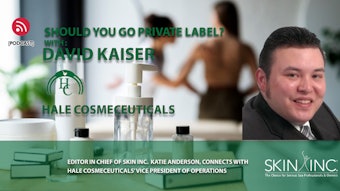
Even in ordinary times, life as a skin care facility owner means dealing with many challenging decisions, any one of which can have a negative impact on your operation. Now, with today’s unpredictable business climate, even tiny management errors hold the potential for serious damage to your bottom line.
Following are six common and costly management mistakes, along with advice on how to keep them from harming your business this year—and in years to come.
1. Trying to do it all yourself. As the saying goes: If you want something done right, do it yourself. This is a classic philosophy with an undeniable grain of poetic truth. As a result, too many business owners suffer from a dangerous case of do-it-yourself-itis. “Failing to understand the importance of delegating is one of the most common mistakes made by small business owners,” says entrepreneur and consultant, Phil Wilkins. “You must learn to focus on what you do best and pass off the rest to others.”
2. Ignoring unsatisfactory employees. Discharging an unproductive or disruptive employee is an unpleasant task most skin care facility owners dread. However, failing to take action in those cases can be a costly mistake. “Once you identify an unsatisfactory employee, it’s best to face up to the unpleasant task of terminating the relationship. Postponing it will only lead to more serious problems,” says management consultant and business owner Simon T. Bailey. “It can also lead to resentment on the part of your best employees who feel their work is not being appreciated.”
3. Misunderstanding the meaning of marketing. Many spa owners are so busy dealing with day-to-day operations that they never get around to putting together a business-building marketing program. That’s a mistake. Marketing is a basic building block in the construction of a successful skin care facility. Yet, many owners shy away from all but the most obvious ways to promote themselves and their businesses.
Although advertising is an essential part of marketing, it is only that—a part. An effective marketing program embraces all facets of your business. To be an effective marketer, you must nurture and promote your professional image, and sell yourself, as well as your spa. There is no other way. Marketing is a complex fabric woven of many threads. Spa owners should spend a reasonable part of their time learning what goes into the makeup of a complete marketing program.
4. Hiring friends or family. Many owners owe their success, at least in part, to an employee who is either a relative or a friend of the owner. When such a relationship works, it can work very well. When it doesn’t click, it can be disastrous for a small business. Bringing a friend or relative into your business is risky. If the relationship doesn’t work out, terminating it can bring serious problems.
5. Failing to ask for outside help. Entrepreneurs tend to be independent thinkers, observes Bailey. “That’s why they are often reluctant to reach out to others for help in areas where their own experience is lacking,” he says. Forming a peer group is an excellent way for a business owner to benefit from a no-cost advisory board. “Recruit five or so successful business owners in different fields and meet once a month to share ideas,” he says. “You’ll be surprised at how much you’ll benefit.”
6. Failing to focus on customer service. On average, it costs five times as much to find a new client than to save an old one. That’s why every customer complaint— even those that cost time and money to resolve—represents a business-building opportunity. According to Carl Robinson, PhD, a profitable level of customer service isn’t a happy state of affairs reached by accident. Instead, it requires a clearly defined and rigidly observed policy that makes client satisfaction the stated goal of every transaction.
William J. Lynott is a veteran freelance writer who specializes in business management, as well as personal and business finance. His work appears regularly in leading trade publications and newspapers, in addition to consumer magazines such as Reader’s Digest, AARP Bulletin and Family Circle. He can be contacted via e-mail at [email protected].










